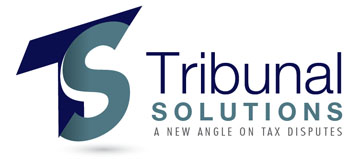You have been involved in a protracted struggle with HMRC for what seems like an age.
Costs are increasing and little or no progress seems to have been made. You don’t want to
give in because you feel that you are in the right but there seems nowhere left to go.
Why not give the First Tier Tax Tribunal a try? It has a number of advantages for the
taxpayer:
- It is free;
- Costs are rarely awarded except in exceptional cases;
- The tribunal is independent;
- It is an informal process and barrister representation is not required;
- The Tribunal approaches matters in a common sense way;
- Any findings of fact by the Tribunal are normally binding so the only avenue of
- appeal from the Tribunal is on points of law (if there are any);
- It may provide finality quicker than continuing with correspondence and negotiation.
However, those who are not familiar with the process will be at a significant disadvantage
when faced with an HMRC presenting officer who deals with the Tribunals on a regular
basis. It is important to understand which lines of attack are likely to succeed and, just as
importantly, which ones will not.
Here are some of the approaches which will fall on stony ground:
- It is unfair;
- This is my first mistake;
- I didn’t know I had to ……;
- I was only a few days late;
- My accountant/bookkeeper let me down;
- I paid late because I am having cashflow problems at the moment;
- I can’t afford to pay a penalty of this size;
- I promise it won’t happen again;
- We have put processes in place to ensure it won’t re-occur;
- I thought I didn’t need to send it because it was a nil return;
- HMRC have not replied to correspondence and have been generally inefficient;
- I thought I’d submitted it successfully on-line;
- I didn’t know internet payments take 3 days to clear.
Approaches which may well work are too diverse and variable to include in a short article
like this but prerequisites for success are:
- Understanding the tax law concerned;
- Assembling a body of supporting evidence;
- Concentrating on the most promising lines of defence;
- Spotting weaknesses in HMRC’s case;
- Presenting the case clearly, logically and forcefully.
Many cases before Tribunals deal with the concept of reasonable excuse. However this is not “reasonable” in the common sense meaning of the word. Instead it is a legal construct which has evolved following a number of decided cases and can be a deceptively tricky area. So my advice, as an accountant with extensive involvement with the Tribunal system over a number of years, is to bear in mind the possibility of opting for the Tribunal approach. But careful preparation and a professional approach are vital.
